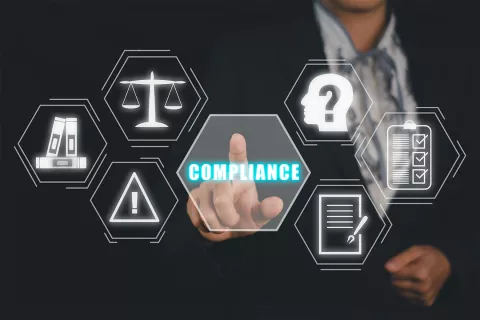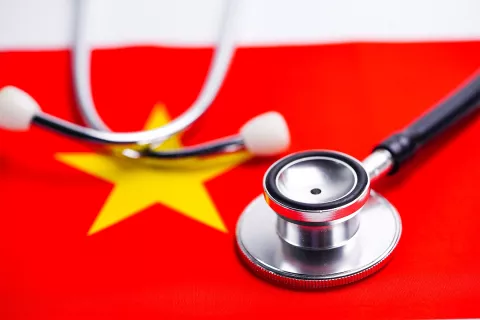
The US is the largest medical device market, worth USD 180 billion (2021) and is expected to reach USD 670 billion at a CAGR of 5.2% from 2022 to 2027. The global medical device manufacturers find it promising to get their devices approved by US FDA and subsequently export them to the US.
One critical need for the non-US device manufacturers, who intend to market their products in the US, is to appoint a US Agent. Manufacturers may either choose to appoint a reliable US Agent service provider or their importer/distributor to represent their device in the US. Foreign device manufacturers may have certain questions about US Agents, their role, and their responsibilities. Here is the list of the top 15 questions that medical device manufacturers frequently pose
1. Is it mandatory to appoint a US Agent?
Yes! As per US Food and Drug Administration (US FDA), all the foreign medical device manufacturers seeking to market their products in the United States are required to designate a US agent.
2. What are the prerequisites for a US Agent?
The US Agent can be a person or an entity and must reside in the United States. The entity must be registered in the US and must have an active DUNS number. The Agent should have a physical premise as an address to contact. The appointed entity or person should be available to assist with any communication during normal business hours.
3. What is the difference between US Agent and an Official Correspondent?
An official correspondent is the point of contact for device submissions such as 510(k), PMA, etc., and can be an employee of the sponsor or a third-party agency. The official correspondent is required for any submission, irrespective of whether it is a domestic or foreign manufacturer. The official correspondent need not be in the US and can be from any country. On the other hand, the US Agent is not involved in the device submissions and approvals. However, foreign manufacturers can choose to appoint the same person as both the US Agent and the official correspondent. In such cases, the entity shall fulfill the roles and responsibilities of both.
4. What are the responsibilities of a US Agent?
The US Agent will primarily be responsible for assisting any bilateral communication between the FDA and the manufacturer and in scheduling an FDA inspection.
US Agent will respond to questions concerning the foreign establishment’s devices that are imported or offered for import into the United States.
Suppose the FDA is unable to contact the foreign establishment directly or expeditiously. In that case, FDA may provide information or documents to the US Agent, and such an action shall be considered to be equivalent to providing the same information or documents to the foreign establishment.
5. Do the responsibilities of a US Agent vary with the risk class of the device?
No, the roles and responsibilities of a US Agent remain the same irrespective of the Class of a device manufactured in a given foreign establishment.
6. As a US Agent, what information about the device and its manufacturing should one be informed about?
As per US FDA. "The US Agent has no responsibility related to reporting of adverse events (21 CFR Part 803), or submitting 510(k) Premarket Notifications (21 CFR Part 807, Subpart E)". The manufacturer should keep their US Agent informed about any post-approval changes, revisions in the device version, changes in manufacturing sites, labeling and packaging, and/or any change concerning registration and listing of medical devices. The official respondent would be the key to any post-approval change notifications submitted to the US FDA.
7. Is it mandatory to notify the US FDA about the US Agent details?
Yes, the foreign manufacturer is required to update the US Agent details in the FURLS system. Information such as name, title, business name, address, phone, fax, DUNS number, and email of the US Agent is required to be submitted.
8. When should a foreign medical device manufacturer appoint a US Agent?
Foreign manufacturers must designate a US Agent to carry out establishment registration, device listing, and other activities, which must be completed prior to importing the device to the US. In the case of the 510(k) exempted Class I and II devices, the US Agent can be appointed right away, followed by an establishment registration, device listing, and importation into the US.
For Class I and II devices without 510(k) exemption and a few Class III devices subjected to premarket notification, shall be 510(k) cleared before appointing the US agent and carrying out the establishment registration and device listing activities. Likewise, a few Class II devices and III devices subjected to premarket approval must secure PMA, post which they can appoint an agent. The same would apply to other devices opting for De-Novo, IDE, and HDE submissions.
9. Can a foreign manufacturer appoint their distributor or importer as a US agent?
Yes, a foreign manufacturer can choose to appoint their distributor or importer as a US agent. The manufacturer shall evaluate potential conflict of interest or biases on their role as distributor or importer and their Regulatory obligations as a US Agent. Alternatively, independent third parties such as Regulatory service providers can be appointed as US Agents. Though there is an additional cost involved, they ensure confidentiality and offer dedicated and professional US Agent services without any bias or conflict of interest.
10. Is it possible to change my US Agent at any given point in time?
Yes, the foreign manufacturer can change their US Agent at any time. Change of the US Agent will not affect registration or business.
Even if the device is being actively imported and marketed in the USA, the manufacturer can choose to change their US Agent. The details of the newly appointed US Agent, like name, location, contact information, business name, address, etc., must be updated in the FURLS system, followed by the confirmation via email verification.
11. How to change US Agent information in the FDA registration?
- Login to your account
- Update information in the US Agent section
- Submit the registration
- US Agent will receive notice from the FDA for confirmation
12. Is it possible for a manufacturer to appoint different US agents for different products?
As per the US FDA, for each foreign establishment, only one US Agent can be designated. However, If two (02) products are being manufactured in different establishments (one in each), the manufacturer can appoint different US Agents. If the products are manufactured in the same establishment, only one (01) US Agent should be appointed. On the flip side, if one (01) product is manufactured in two (02) different establishments, the manufacturer can appoint two (02) different US agents (one (01) for each establishment) for the same medical device.
13. My device is GMP exempted. Do I need to appoint a US Agent?
Most Class I and some Class II devices are GMP exempted, while others must comply with GMP. However, the exempted devices are subjected to general requirements and appointing a US Agent is one of the requirements. Hence, irrespective of whether a device is GMP exempted or not, all foreign manufacturers must appoint a US agent.
14. I am a medical device component manufacturer. My products are imported by a re-packager for assembling the final finished device. Do I have to appoint a US Agent?
Yes, as per FDA’s definition, any foreign establishment which is involved in manufacturing, preparing, propagating, compounding, or processing a medical device is required to appoint a US agent. Thus, even if you are selling the component of the medical device (which will fall under compounding) in the United States, it is mandatory to appoint a US agent.
15. I am a medical device specification developer and not engaged in manufacturing activities. The products are manufactured at a CMO site and exported to the US. Do I have to appoint a US Agent?
Yes, the specification developer is also subjected to establishment registration and is required to appoint a US Agent as well as an official correspondent.
As per the FDA, any person who initiates or develops specifications for a device that is to be manufactured by a second party requires establishment registration and listing. FDA requires the specification developer of the foreign establishment to register with FDA before doing business in the US. Therefore, the specification developer is also subjected to appointing US Agent.
The global device manufacturers can tap the US medical device market, but only after all the US FDA requirements are duly fulfilled. One may obtain quotes from various service providers for US Agent services. The quotes may vary significantly across different service providers as few may account for initial establishment registration, device listing subsequent annual registrations, whereas others may account for just being appointed as US Agent. The foreign manufacturers, while appointing the US agent, must diligently discuss and negotiate the scope of the US Agent's services and ensure that a comprehensive agreement is in place.
Stay informed. Stay compliant.









